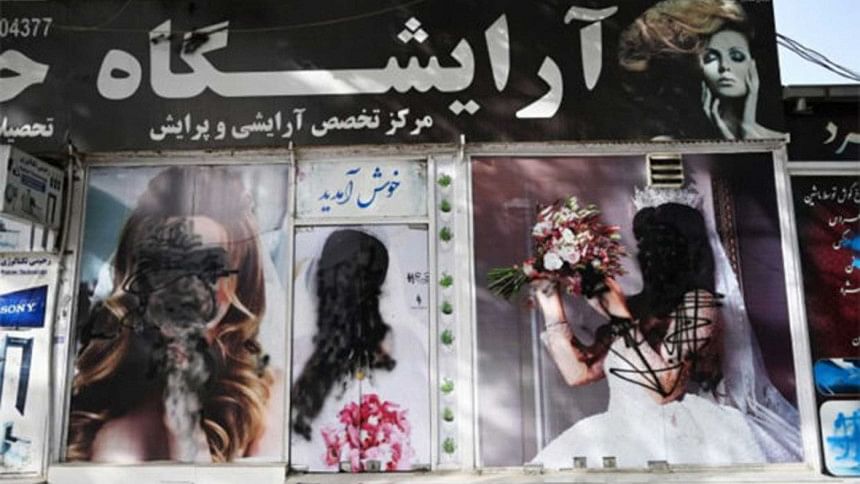Afghanistan under the Taliban: What should we expect?

Afghanistan is now under the reins of the Taliban. No, they have not come to power through the ballot box, rather they have accomplished it by implementing the famous saying of Mao Zedong: "political power grows out of the barrel of a gun." Afghanistan is now a Shariah-based Islamic state.
While lots of people have been struck by what has happened in Afghanistan in recent days, and others have been screaming that "everything is lost", there is no reason to be surprised. For a long time, operating under the radar, the Taliban has been consolidating its power and position all over Afghanistan, and then recently, it dealt the final blow. Today, it's the victor. The resumption of power by the Taliban after 20 years has a context, a history, and a set of correlated factors. Over the past years, a number of reasons have paved the way for another Taliban takeover.
First, the Afghan government, from the beginning, has been weak, vulnerable, and inefficient. The past two presidents—Hamid Karzai and Ashraf Ghani—were, in a sense, outsiders and were in fact implanted by the United States. As a result, they were two American loyalists. Before becoming the President of Afghanistan, Hamid Karzai was an employee of Halliburton, where former US Vice-President Dick Cheney was the CEO from 1995 to 2000. I used to know Ashraf Ghani personally. While I was heading the United Nations Poverty Reduction Division, he used to head the Social Development Division of the World Bank. Both of them were elites, educated abroad, and were attuned to the western standard of living. The complex realities of Afghanistan on the ground were beyond their comprehension and they did not have any real connection with either the Afghan life or its common people. As a result, during their tenures, they could not build an effective administrative system in Afghanistan. Thus, during the past two decades, the regions of the country were delinked from each other and the regional administrations were run by regional warlords. The central government was non-operational and ineffective at the regional level.
Second, because of the ineffectiveness of the central government, over the past years, Afghanistan failed to build a capable, effective, and strong armed force. So, the moment the western armed forces had left Afghanistan, the resistance broke down and the Taliban took over nearly every inch of the country. About a 180,000-strong Afghan army had to surrender to 80,000 Taliban fighters. While they were on the Afghan soil, the western army was supposed to train Afghan soldiers, which obviously did not happen to the extent necessary. The results were thus as expected.
Third, as the Afghan government was absent at the rural level of the country, the Taliban had carried out an effective propaganda war in its favour. During the past 20 years, the Taliban has skilfully made the rural Afghanis believe that the country had gone under the grip of the westerners, who are enemies of Islam. So, the war they were engaged in was, in fact, a Jihad. The message resonated with rural Afghanis, the Taliban got popular support, and it consolidated its base.
Fourth, over the years, the west has pursued a dual policy in Afghanistan. On the one hand, it has assured and promised to help the Karzai or the Ghani government, but on the other hand, it has been secretly negotiating with the Taliban. Last year, without informing the Afghan government, the Trump administration held secret meetings with the Taliban. This act, on the one hand, had weakened the Afghani government, but on the other, had strengthened the Taliban position.
Fifth, the Americans have left Afghanistan at a very short notice, leaving their Afghan allies vulnerable to the Taliban. About 50 years ago, they did the same in Vietnam. The photos of thousands of desperate Afghanis at Kabul Airport trying to flee the country remind one of hundreds of helpless desperate Vietnamese outside of the American Embassy in Saigon. In Afghanistan, Americans easily forgot their Afghan allies who helped them as interpreters, translators, or in other capacities. It again proved the famous saying of John Foster Dulles, the US Secretary of States in the 1950s, as true: "we don't have permanent friends, we don't have permanent foes, but we have permanent interests."
At this juncture of the Taliban's takeover of Afghanistan, three observations are critical. One, the Taliban has a very radical belief system. Thus, the country would be ruled by Shariah law. It means that the Taliban would resist any kind of liberal ideas or liberal people, scientific outlooks and modern thoughts. As a result, right after taking over, they killed the famous Afghan poet, researcher and historian Abdullah Atifi. The comedian, Fazal Mohammad, was beaten to death.
Two, the Taliban is a cunning and treacherous group. So, they do not have any problem telling lies, deceiving, or betraying others. In the past, it has done so with the utmost ease. Therefore, whatever assurance it is providing now to protect the rights of women. Women would likely be the most oppressed group in the coming days. Islamic extremists from various countries are said to have been invited to come to Afghanistan to join the Taliban in exchange for Afghani women as presents to them. There have been allegations of Afghan girls and women being trafficked to neighbouring countries as sex slaves. In order to ensure their safety, a number of parents are giving their daughters in marriage to Taliban soldiers.
Three, a number of people seem to hope that the Taliban will take lessons from the past. Surely, it will take lessons, no doubt, but those will neither be positive nor constructive. About two decades ago, it had committed a blunder by giving refuge to Al-Qaeda, and it has learnt its lesson. Undoubtedly, it is not going to make the same mistake this time. The Taliban will keep quiet until the foreigners completely leave Afghanistan, after which it will show its true face. It is not going to make the same mistake this time—carrying out atrocities in the presence of foreigners in Afghanistan.
The Taliban, in my view, will not limit its activities to only within Afghanistan. Soon it will aspire to expand its sphere of influence to other countries. Pakistan may be its next target. The Pakistani prime minister has already uttered supportive words to the Taliban. So the door is open. At one point in time, it may turn its attention to Bangladesh as well. And that may be an alarming moment for us.
Selim Jahan is former Director, Human Development Report Office and Poverty Division, UNDP.

 For all latest news, follow The Daily Star's Google News channel.
For all latest news, follow The Daily Star's Google News channel. 



Comments